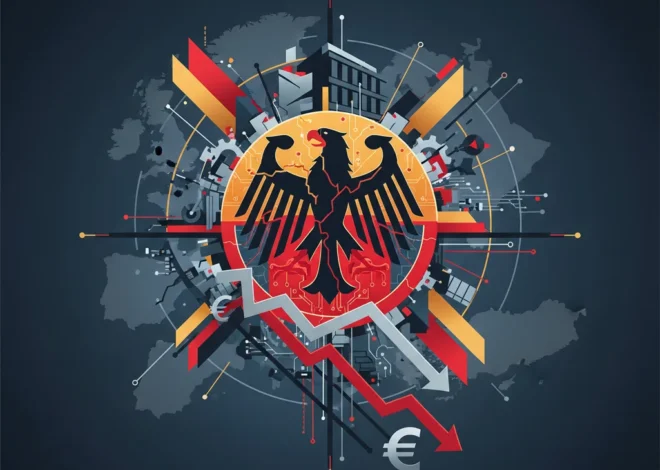
Beyond the Ivy Tower: What Europe’s Top Business Schools Reveal About the Future of Finance and Leadership
The New Playbook for Global Leadership: Decoding Europe’s Business School Elite
For decades, the annual rankings of top business schools have been a closely watched barometer of prestige and academic excellence. For aspiring executives, they offer a roadmap to career acceleration. For corporations, they are a directory of premier talent. But for savvy investors, finance professionals, and business leaders, these rankings offer something far more valuable: a high-fidelity signal of where the future of business, technology, and the global economy is headed.
The upcoming 2025 Financial Times European Business Schools ranking provides a treasure trove of data that, when analyzed, reveals the seismic shifts reshaping corporate leadership. It’s no longer just about mastering traditional finance or marketing. The new curriculum for success is being written in the language of financial technology, sustainable investing, and data-driven decision-making. This report isn’t just a list; it’s a look under the hood of the institutions forging the next generation of leaders who will navigate a world defined by digital disruption and economic uncertainty.
In this analysis, we will delve into the key trends emerging from Europe’s most prestigious institutions, exploring what they mean for career trajectories, investment strategies, and the very structure of modern enterprise. From the staggering return on investment for graduates to the curriculum revolution embracing fintech and ESG, we’ll connect the dots between academic trends and real-world market dynamics.
The Perennial Powerhouses: A Look at the Top of the Table
While the full 2025 ranking is yet to be released, preliminary data and historical trends point to a consistent cohort of elite schools leading the charge. Institutions like HEC Paris, London Business School, IESE, and INSEAD continue to dominate, but their continued success is not built on legacy alone. It is a testament to their agility in adapting to the changing demands of the global business landscape. Their strength lies in a powerful combination of rigorous academic programs, unparalleled global networks, and a deep integration with the corporate world.
These schools act as critical hubs in the global finance and business ecosystem. Their graduates consistently land top-tier roles in investment banking, private equity, and management consulting, commanding significant salary increases that underscore the tangible value of their education. According to the FT’s analysis, graduates from top MBA programs often see their salaries more than double within three years of completing their degrees (source). This isn’t just an academic achievement; it’s a powerful indicator of the skills and networks these schools provide.
Below is a snapshot of what makes these top-tier schools a consistent benchmark for excellence, based on historical performance and expected trends.
| Institution | Key Strengths & Differentiators | Typical Post-Graduation Sector Focus |
|---|---|---|
| HEC Paris | Exceptional alumni network, strong ties to French and European corporate giants, leading in strategic management and finance. | Luxury, Consulting, Finance, Tech |
| London Business School (LBS) | Located in a global financial hub, unmatched diversity, deep expertise in finance, private equity, and venture capital. | Investment Banking, Asset Management, Fintech |
| IESE Business School | Case-study methodology, strong focus on ethics and general management, powerful presence in Europe and Latin America. | General Management, Consulting, Operations |
| INSEAD | “The Business School for the World,” with campuses in Europe, Asia, and the Middle East. Known for its intense one-year MBA and global perspective. | Consulting, Technology, Entrepreneurship |
The consistent performance of these schools sends a clear message to the market: a degree from a top European institution is one of the most reliable investments in human capital available today. For investors, tracking the hiring patterns from these schools can provide insights into which companies are prioritizing top-tier strategic talent.
The Setting Sun? Decoding Japan's Economic Contraction and Its Global Ripple Effect
The ROI of an Elite Degree: Analyzing the Financial Uplift
Beyond prestige, the most compelling metric for many is the return on investment. The data consistently shows that graduates from leading European business schools experience a dramatic and rapid increase in their earning potential. This financial uplift is a direct result of the advanced skills, strategic thinking, and powerful networks they acquire. The average weighted salary for alumni from the top 10 ranked schools often exceeds $180,000 within three years of graduation, a testament to their accelerated career progression (source).
This isn’t merely about securing a higher starting salary; it’s about being placed on a faster trajectory for leadership. Graduates are equipped to tackle complex challenges in areas like corporate finance, M&A, and global market strategy. This makes them invaluable assets to companies looking to navigate a volatile global economy. For individuals considering such a program, the decision is less of an expense and more of a long-term investing strategy in their own career.
The Curriculum Revolution: Adapting to a World of Fintech and ESG
Perhaps the most fascinating trend revealed by the data is the rapid evolution of business school curricula. The traditional pillars of business education are being augmented—and in some cases, replaced—by subjects that were on the fringe just a decade ago. The twin forces of digital transformation and sustainability are at the heart of this revolution.
Courses on financial technology (fintech), blockchain applications, and data analytics are no longer niche electives; they are core components of the modern business degree. Schools are recognizing that a future leader in banking or trading cannot succeed without a deep understanding of how technology is fundamentally altering the flow of capital and the structure of the stock market. Students are learning not just the principles of economics, but how to apply machine learning to investment models and how decentralized finance (DeFi) could reshape global finance.
Simultaneously, Environmental, Social, and Governance (ESG) criteria have moved from a footnote to a headline topic. The FT’s inclusion of metrics like the teaching hours dedicated to ESG and the school’s own carbon footprint is a reflection of a profound market shift (source). Investors and consumers alike are demanding that companies demonstrate a commitment to sustainability and ethical governance. Business schools are on the front lines, training leaders who can build profitable enterprises that are also responsible corporate citizens. This integration of purpose and profit is arguably the most significant development in business education in a generation.
Hedge Fund vs. Property Giant: The Lawsuit Exposing a "Textbook" Market Failure in the UK
A Global Mindset: The Enduring Power of International Diversity
A key differentiator for European business schools has always been their profound international character. Unlike many of their U.S. counterparts, European campuses are a melting pot of nationalities, cultures, and perspectives. It’s not uncommon for a cohort to represent 50 or more different countries. This diversity is not just a social benefit; it is a core educational tool.
The table below illustrates the typical diversity found in top-tier European programs, a critical factor in their global appeal.
| Diversity Metric | Typical Range in Top European Schools | Strategic Importance |
|---|---|---|
| International Students | 85% – 95% of student body | Builds a truly global network; exposes students to diverse market perspectives and business practices. |
| International Faculty | 70% – 90% of faculty | Ensures a global curriculum and research focus, moving beyond a single-country economic perspective. |
| International Board Members | 50% – 75% of board | Drives a global strategy for the school itself, ensuring relevance across international markets. |
In a world where supply chains are global, capital flows are borderless, and geopolitical shifts can impact the stock market overnight, the ability to work across cultures is not a soft skill—it is a fundamental requirement for leadership. Graduates of these programs enter the workforce with a built-in global network and an intuitive understanding of how to conduct business in a multicultural context. This global mobility and mindset are invaluable for multinational corporations and investment firms operating on the world stage.
The 5 Business Crises Shaping Tomorrow's Leaders: What Top Professors Are Teaching Now
Conclusion: The Future is Forged in the Classroom
The data emerging from Europe’s top business schools offers a clear and compelling vision of the future. It’s a future where leadership is defined not just by financial acumen, but by technological fluency, a commitment to sustainability, and a genuinely global perspective. The high salaries and career progression of graduates are not the story itself, but rather the outcome of an educational system that is successfully adapting to the complex demands of the 21st-century economy.
For investors, these trends highlight the growing importance of human capital and the need for leadership that can navigate digital and sustainable transitions. For finance professionals, they underscore the necessity of continuous learning to stay relevant in an industry being reshaped by fintech and ESG. And for business leaders, they provide a blueprint for the skills and mindsets required to build resilient, innovative, and responsible organizations. The message is clear: the institutions topping the charts are not just teaching business; they are building the future of it.


